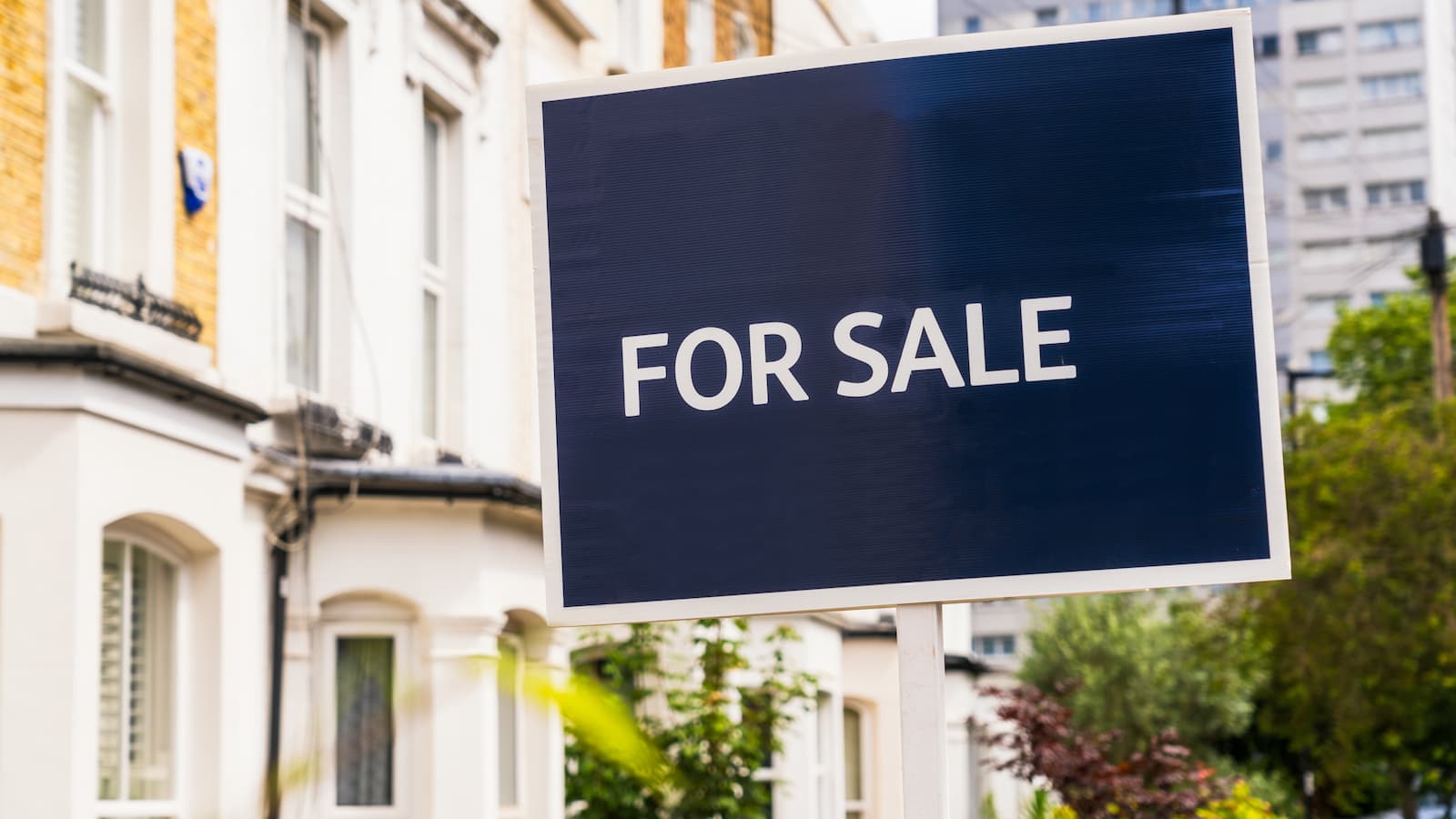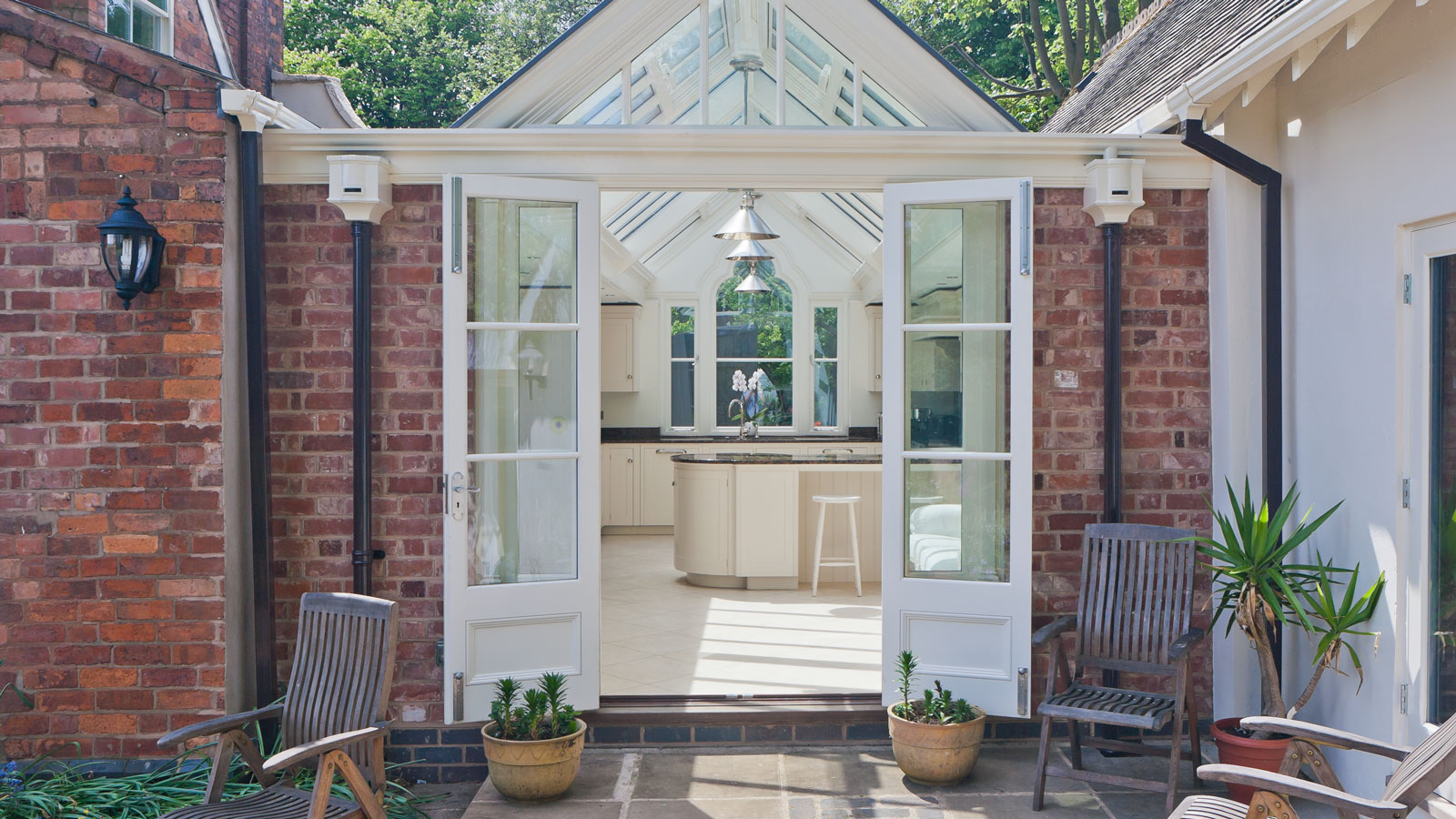Council’s plan to ban 'For Sale' signs outside homes sparks debate
Westminster Council have proposed plans to ban 'For Sale' signs outside homes after claiming it causes "substantial harm" to the local character

Bring your dream home to life with expert advice, how to guides and design inspiration. Sign up for our newsletter and get two free tickets to a Homebuilding & Renovating Show near you.
You are now subscribed
Your newsletter sign-up was successful
Westminster Council has proposed a sweeping ban on 'For Sale' signs across the entire borough, citing concerns about their impact on the visual appeal and local character.
This move follows a previous restriction on such signs in conservation areas and is driven by the growing reliance on online property platforms.
While the council argues that these signs are no longer necessary for those who are looking to sell or buy a house, the proposal has raised significant concerns within the property industry, with experts warning that it could harm smaller estate agents and disrupt a long-established marketing tool.
Why is the council planning to ban 'For Sale' signs?
Westminster, home to some of London’s most affluent neighbourhoods such as Mayfair and Knightsbridge, already restricts the use of 'For Sale' signs in conservation areas to preserve the area's aesthetics.
The council is now seeking to extend this ban across the entire borough, arguing that such signs cause “substantial harm to visual amenity and local character.”
With the rise of online house-hunting, the council claims these physical signs are becoming redundant, as potential buyers now primarily use digital platforms for their property searches.
Potential impact on smaller estate agents
A key point of contention is the proposal’s potential impact on smaller estate agencies.
Bring your dream home to life with expert advice, how to guides and design inspiration. Sign up for our newsletter and get two free tickets to a Homebuilding & Renovating Show near you.
It is claimed that for many independent firms, 'For Sale' signs are a crucial marketing tool that allows them to advertise properties and build their reputation within local communities.
With the increasing dominance of larger property firms that can afford substantial digital marketing campaigns, small businesses could be left at a disadvantage.
Rico Wojtulewicz, head of planning and market insight at the National Federation of Builders (NFB), criticised the move, stating: “It’s time to call out Westminster Council as Nimby’s on this issue. Not all estate agencies use online advertising due to the costs, and physical signs are an effective, low-cost way for businesses to market both a property and their brand.”

Rico Wojtulewicz is the head of housing for the National Federation of Builders and House Builders Association, which he joined in 2015. He has also previously worked in politics, residential service delivery, employment, education, policy and as a development consultant, working with local councils for project development strategies.
What’s next for the proposal?
To implement the ban, Westminster Council will need permission from the Secretary of State for Housing, Communities, and Local Government.
The decision will likely set a precedent for other boroughs in London and could influence broader property marketing practices across the UK.
As the debate continues, property professionals are calling on policymakers to reconsider the impact on smaller businesses. Wojtulewicz summed up the concern, stating: “This proposal is a litmus test for whether we’re serious about supporting small businesses and ensuring growth. It will be interesting to see if Westminster’s decision will encourage or inhibit the growth of local businesses and property markets.”
As the proposal moves forward, it remains to be seen whether Westminster will proceed with its blanket ban or take a more measured approach that balances both aesthetic considerations and the needs of local property businesses. The outcome could have wider implications for how homes are marketed in London –and beyond.

News Editor Joseph has previously written for Today’s Media and Chambers & Partners, focusing on news for conveyancers and industry professionals. Joseph has just started his own self build project, building his own home on his family’s farm with planning permission for a timber frame, three-bedroom house in a one-acre field. The foundation work has already begun and he hopes to have the home built in the next year. Prior to this he renovated his family's home as well as doing several DIY projects, including installing a shower, building sheds, and livestock fences and shelters for the farm’s animals. Outside of homebuilding, Joseph loves rugby and has written for Rugby World, the world’s largest rugby magazine.
